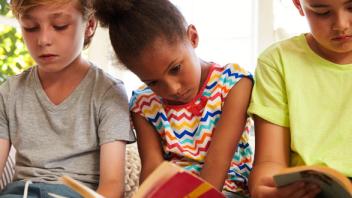Teacher question: In an effort to streamline the workshop model in our district, I am looking for your stance on focused independent reading and/or any articles that you have written that support the importance of students reading at school with a specific focus in mind rather than “reading just to read”?
Shanahan’s response:
Unfortunately, there aren’t studies of this. People who are claiming that “focused independent reading” works better than having kids just reading on their own are theorizing.
I can tell you that the pattern of studies that I’ve reviewed over the years suggests that efforts to teach reading through kids’ reading practice tend to be most effective when they look the most like explicit instruction.
What I mean by that is that teacher guidance or choice with regard to the texts read, teacher involvement in establishing purposes for reading, and holding kids accountable for comprehension of the material seem to increase the chances of success. Of course, those components aren’t very “reading workshoppy”.
Reading is good, but it is most likely to pay off in more learning than kids can do on their own when someone is making certain that the text delivers a particular reading experience or knowledge for the students, when the kids have a clear idea of what they are working on or trying to accomplish, and when someone makes certain that kids are accomplishing the reading goals and provides reteaching and rereading as needed.
Kids definitely need to read.
They should read within instruction. That kind of reading has students take on particular kinds of reading challenges and makes sure that they learn to do that successfully.
Students also should read on their own, as part of their own lives. Requiring kids to read for enjoyment at school is neither particularly enjoyable, nor does it provide kids with any opportunity to make decisions about when and why they will read in the spaces they reside and in their daily routines.
Reading workshop as usually conceived is too different from instruction to give kids the added benefit that should come from working with teachers. You can try to tighten up on workshop practices to make them more like teaching, but you might be better off starting with a teaching model and then try to make it more motivational.
Nevertheless, I’m glad you are trying to find ways to make reading workshops effective. In contrast, I heard from a teacher this week who was reprimanded for running extended classroom literature discussions instead of 1- to 3-minute individual conferences.
I guess not everyone wants kids to think deeply about literature. Or understands that you can’t accomplish that in 60 second increments with relatively non-challenging books.
Oh, I know that there are teachers (and authors of popular education books) who claim kids benefit greatly from reading self-selected popular YA literature and that no student should be questioned closely or thoroughly by teachers who have studied and thought deeply about those books.
But they’re wrong. They don’t have research supporting their claims and the research that does exist on such issues suggests that what they have to offer is not particularly potent. Indeed, try to find ways to make your workshops look more like effective teaching. That might just work!
About the Author
Literacy expert Timothy Shanahan shares best practices for teaching reading and writing. Dr. Shanahan is an internationally recognized professor of urban education and reading researcher who has extensive experience with children in inner-city schools and children with special needs. All posts are reprinted with permission from Shanahan on Literacy .

